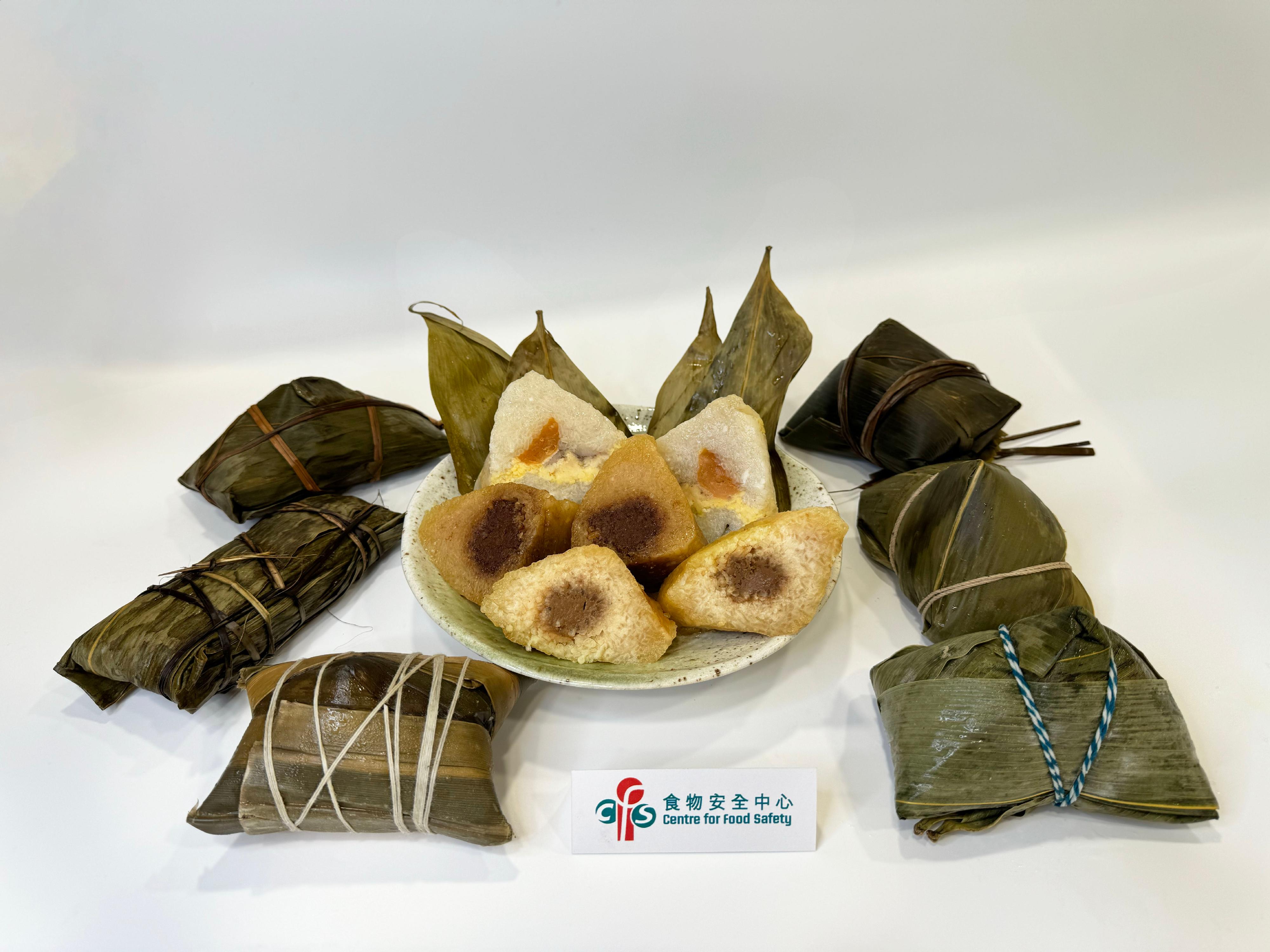​The Centre for Food Safety (CFS) of the Food and Environmental Hygiene Department today (June 3) announced that the test results of 74 rice dumpling samples collected under a recently completed seasonal food surveillance project on rice dumplings (second phase) were all satisfactory.
"The CFS announced the results of 46 samples collected under the seasonal food surveillance project on rice dumplings (first phase) in late May which were all satisfactory. As the Tuen Ng Festival is around the corner, the CFS has completed the second phase of the surveillance project on rice dumplings and the results of 74 samples were all satisfactory. In conclusion, samples of rice dumplings from different retail outlets (including online retailers and online food delivery platforms) and food premises (including restaurants and food factories) were collected for chemical, microbiological and nutrition content analyses during the two phases. The chemical analyses included tests for colouring matters, preservatives, metallic contamination, mineral oil, antioxidants, sweeteners and pesticide residues. The microbiological analyses covered pathogenic bacteria including Salmonella, coagulase-positive staphylococci organisms, Clostridium perfringens and Bacillus cereus. In addition, nutrition contents such as energy contents, protein, carbohydrates, total fat, saturated fatty acids, trans fatty acids, sodium and sugars of the samples were also tested to check whether the test results complied with their declared values on the nutrition labels," a spokesman for the CFS said.
The spokesman reminded members of the public to observe the following food safety tips in purchasing, preparing, storing and consuming rice dumplings:
Buying rice dumplings
————————
* Buy rice dumplings from reliable outlets;
* When purchasing non-prepackaged rice dumplings, choose those that are securely wrapped in wrapping leaves; and
* When purchasing prepackaged rice dumplings, check the expiry date and whether the packaging is intact.
Home-made rice dumplings
—————————–
* Buy wrapping leaves from reliable suppliers and avoid leaves that are unnaturally bright green or with chemical odours;
* Wash hands and utensils thoroughly before and after handling food; and
* Handle raw and cooked food separately to avoid cross-contamination.
Storing and preparing rice dumplings
—————————————
* Consume rice dumplings as soon as possible and avoid prolonged storage;
* Both the glutinous rice and the stuffing should be well covered until the rice dumplings are unwrapped. Do not come into direct contact with the strings upon cooking to prevent contamination at all times.
* Store rice dumplings at 4 degrees Celsius or below, or store them properly according to the instructions on the package if they are not consumed or cooked immediately;
* Keep cooked rice dumplings that are not consumed immediately in a covered container and put them in the upper compartment of the refrigerator. Keep raw food in the lower compartment to prevent cross-contamination;
* Reheat rice dumplings thoroughly until the core temperature reaches 75 degrees C or above before consumption;
* Do not reheat rice dumplings more than once; and
* Consume reheated rice dumplings as soon as possible.
Consuming rice dumplings
—————————-
* Wash hands with running water and liquid soap, and rub for at least 20 seconds before consumption; and
* Reduce seasonings such as soy sauce or granulated sugar during consumption.
The spokesman said, "Rice dumplings in general are relatively high in energy, fat and salt. During the festival, people should maintain a balanced diet, and consume rice dumplings moderately, with due consideration of their health condition. People are recommended to share rice dumplings with their family members and friends, as this not only enhances the festive atmosphere, but also allows them to taste rice dumplings of different flavours and avoid over-consumption. People are also advised to make use of nutrition labels on prepackaged food to compare their nutritional contents for healthier food choices."
The spokesman also reminded the food trade to purchase food ingredients from reliable suppliers and maintain proper records to facilitate source tracing when necessary. They should follow Good Manufacturing Practice in the preparation of food products and comply with legal requirements when using food additives. The spokesman advised the food trade to adopt the Hazard Analysis Critical Control Point System to identify, assess and control possible hazards in the food production process.
Follow this news feed: East Asia






